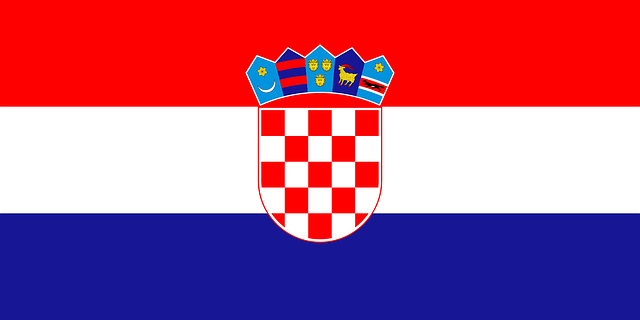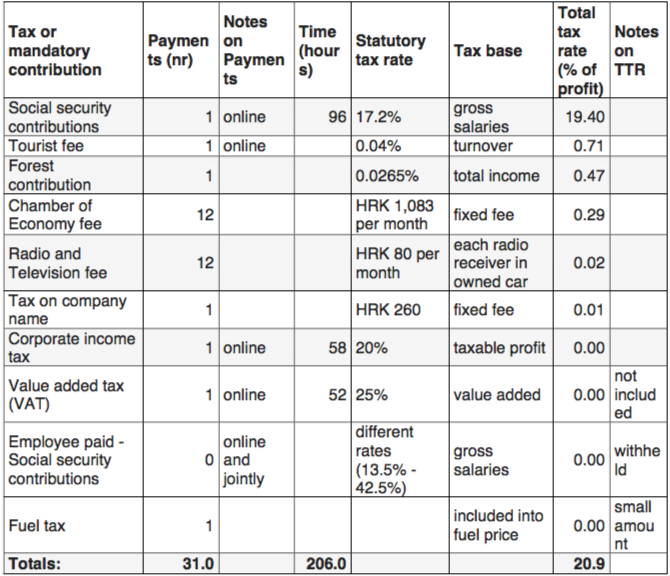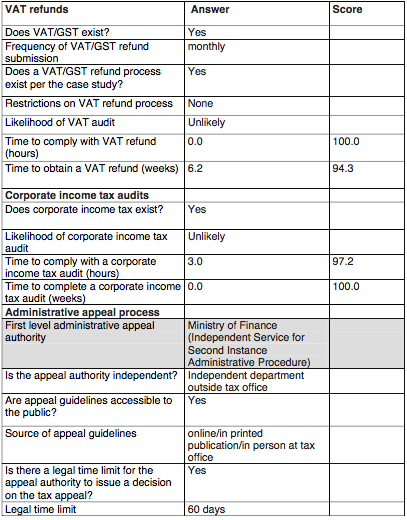
I. GENERAL DATA
Croatia is a sovereign state between Central Europe, Southeast Europe, and the Mediterranean. Its capital city is Zagreb, which forms one of the country’s primary subdivisions, along with its twenty counties.
Croatia covers 56,594 square kilometers (21,851 square miles) and has diverse, mostly continental and Mediterranean climates.
Croatia’s Adriatic Sea coast contains more than a thousand islands. The country’s population is 4.28 million, most of whom are Croats, with the most common religious denomination being Roman Catholicism.
A unitary state, Croatia is a republic governed under a parliamentary system. The International Monetary Fund classified Croatia as an emerging and developing economy, and the World Bank identified it as a high-income economy.
Croatia is a member of the European Union (EU), United Nations (UN), the Council of Europe, NATO, the World Trade Organization (WTO) and a founding member of the Union for the Mediterranean.
As an active participant in the UN peacekeeping forces, Croatia has contributed troops to the NATO-led mission in Afghanistan and took a non-permanent seat on the UN Security Council for the 2008–2009 term.
The service sector dominates Croatia’s economy, followed by the industrial sector and agriculture. Tourism is a significant source of revenue during the summer, with Croatia ranked the 18th most popular tourist destination in the world. The state controls a part of the economy, with substantial government expenditure. The European Union is Croatia’s most important trading partner.
Since 2000, the Croatian government constantly invests in infrastructure, especially transport routes and facilities along the Pan- European corridors. Internal sources produce a significant portion of energy in Croatia; the rest is imported. Croatia provides a universal health care system and free primary and secondary education, while supporting culture through numerous public institutions and corporate investments in media and publishing.
Croatia has established diplomatic relations with 174 countries.
As of 2009, Croatia maintains a network of 51 embassies, 24 consulates and eight permanent diplomatic missions abroad. Furthermore, there are 52 foreign embassies and 69 consulates in the Republic of Croatia in addition to offices of international organizations such as the European Bank for Reconstruction and Development, International Organization for Migration, OSCE, World Bank, World Health Organization (WHO), United Nations High Commissioner for Refugees and UNICEF.
In 2009, the Croatian Ministry of Foreign Affairs and European Integration employed 1,381 personnel and expended 648.2 million kuna (€86.4 million). Stated aims of Croatian foreign policy include enhancing relations with neighboring countries, developing international co-operation and promotion of the Croatian economy and Croatia itself.
II. FOREIGN INVESTMENT
After experiencing a period of growth in 2005-2008, foreign direct investment inflows to Croatia collapsed as an effect of the global economic crisis. The tourism sector was particularly affected. Since then, FDI flows have been struggling to return to their pre-crisis levels. In 2015 they went down again to USD 174 million, after having shown signs of recovery in 2014, their highest level since 2009.
Why You Should Choose to Invest in Croatia?
Strong Points
Croatia has a number of strong points:
- An advantageous geographical location along the Adriatic Sea;
- A skilled multilingual workforce;
- Good quality infrastructures: Croatia continues to invest heavily in transportation, telecommunications and energy infrastructures.
Weak Points
Croatia still has to face a number of challenges in order to become competitive:
- The country suffers from certain structural weaknesses amongst which are the current account imbalance, a significant private foreign debt and a trade deficit;
- The country also has an image problem. It is more known for tourism than as and investment opportunity. Croatia is also suffering from a backlash of years of war; and
- The legal and administrative systems are slow and could use some improvement.
Government Measures to Motivate or Restrict FDI
Croatia is open to foreign investment. The government has committed itself to increasing foreign investment and has taken measures to improve the investment climate in the country, for example, depending on the type of activity (manufacturing, technology centers, supporting services), through tax reductions and employment incentives.
Amongst the main measures established by the government, we can name in particular:
- Equal treatment of nationals and foreigners;
- Low company administrative fees;
- Laws protecting intellectual property.
All measures are established to create an attractive framework for investors and to make Croatia a valid foreign investment recipient.
For more details on FDI’s incentives, refer to the Agency for the promotion of trade and foreign investment and to the Croatian Chamber of Economy website.
Procedures Relative to Foreign Investment
Acquisition of Holdings
A foreign investor can hold 100% interest in the shares of a Croatian company, except in some cases specified by the government.
Obligation to Declare
Only for the acquisition of public joint stock companies. Competent Organization for the Declaration Croatian Financial Services Supervisory Agency.
INVESTMENT OPPORTUNITIES
Investment Aid Agency
Trade and Investment Promotion Office. Tenders, Projects and Public Procurement
- Tenders Info, Tenders in Croatia
- Ted – Tenders Electronic daily, Business opportunities in EU 27
- Global tenders, Tenders & Projects from Croatia
- Dg Market, Tenders Worldwide
Other Useful Resources
- Investment Promotion Directorate at the Ministry of Economy
- Croatian Economic Diplomacy portal
Economy
Croatia has a high-income economy. International Monetary Fund data projects that Croatian nominal GDP stands at $52 billion, or $12,405 per capita for year 2017, while purchasing power parity GDP stands at $97 billion, or $23,171 per capita. According to Eurostat data, Croatian PPS GDP per capita stood at 61% of the EU average in 2012.
TAXATION IN CROATIA
Croatia has a high tax regime, but this shouldn’t affect you unless much of your income derives from sources within the country–or you become a tax resident. Tax residents are generally taxed on their worldwide income.
Based on physical presence, you are a tax resident in Croatia if you stay for at least 183 days under circumstances that indicate your visit is not temporary. The 183-day visit may overlap calendar years.
Based on maintaining a home in Croatia, you are a tax resident if you have a residence there at your exclusive and continuous disposal for at least 183 days under circumstances that indicate you intend to keep and use that accommodation. Again, this period may overlap calendar years. Your length of stay is not relevant, nor does it matter if the accommodation is owned or rented.
This may seem surprising, but if you do not receive a salary, consultancy fees, or a similar income in Croatia, then the tax situation is much more favorable, particularly for retirees.
Croatia has no wealth tax, and the following income is tax free:
- Pensions received from abroad;
- Interest payments on loans, investments, securities, deposits with financial institutions, and similar incomes;
- Capital gains from trading securities and other financial assets;
- Capital gains from real estate if you occupied the property, held it more than three years, orsold it to your spouse or an immediate family member;
- Inheritance and gifts are exempt from taxation in the first line of succession. (In other cases, there is a flat rate of 5%.)
Foreigners are subject to tax on the following forms of Croatian income:
- Income from employment that is received in Croatia or from work in Croatia;
- Income from a business in Croatia;
- Income from real estate;
- Income from one’s own or chartered marine ships/aircraft used for dispatching goods or people from Croatian ports/airports;
- Income from independent personal activities (deliveries of goods or rendering of services) that are carried out in Croatia or abroad, and are used for the performance of an activity in Croatia;
Income from capital or insurance that originates from within Croatia. Current income tax rates are as follows:
- Up to 36,000 kuna ($6,120): 15%
- Over 36,000 kuna ($6,120) and up to 81,000 kuna ($13,770): 25%
- Over 81,000 kuna ($13,770) and up to 252,000 kuna ($42,840): 35%
- Over 252,000 kuna ($42,840): 45%.
Corporate income tax is typically 20%. Croatia’s financial regulations also allow for municipalities to charge an income surtax. However, this will not affect you if you are not tax domiciled in Croatia. Equivalent to a poll tax, the amount payable is taken on income tax thresholds and is levied at varying rates throughout the country:
- A commune can charge at a rate of up to 10%
- Cities with a population of below 30,000 can charge at rates of up to 12%
- Cities with a population over 30,000 can charge at rates of up to 15%
- The city of Zagreb, the capital, can charge as much as 30%.
That’s what municipalities can charge, and it needs pointing out that Dubrovnik already goes for the full whack of 15%. In other places, though, the surtax is often way under those figures. Some examples: Split, 10%; Rijeka, 6.25%; Zagreb, 18%.
Below is a detailed summary of the taxes and mandatory contributions that a medium-size company must pay or withhold in a given year, as well as administrative burden in paying taxes and complying with post filing procedures.
This information was collected as part of the Doing Business project, which measures and compares regulations relevant to the life cycle of a small- to medium-sized domestic business in 190 economies. The most recent round of data collection was completed on June 1, 2016 covering for the Paying Taxes indicator calendar year 2015 (January 1, 2015 – December 31, 2015).


